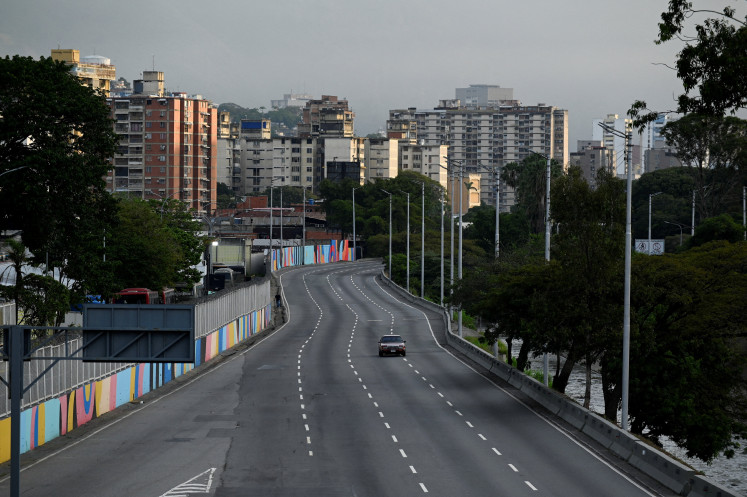Popular Reads
Top Results
Can't find what you're looking for?
View all search resultsPopular Reads
Top Results
Can't find what you're looking for?
View all search resultsEducators urge Nadiem not to neglect informal education
Public reading parks in South Tangerang, Banten, provide a prime example of how community-based initiatives can improve access to education
Change text size
Gift Premium Articles
to Anyone
P
ublic reading parks in South Tangerang, Banten, provide a prime example of how community-based initiatives can improve access to education.
Concerned about the low level of literacy in the city, several communities have set up reading parks that allow anyone to borrow books and take part in their activities for free.
“Many of the public reading parks are located in low-income and marginalized communities because we’re trying to reach the unreached and to serve those who are ignored,” South Tangerang public reading park forum chairwoman Herlina Mustikasari said on Wednesday.
The initiatives have won national recognition.
“Several reading parks were named as the country’s best, and since 2010 we have consistently won awards from the Banten administration as the best public reading parks,” she said.
However, Herlina expressed concern that such initiatives would not be well managed after the Education and Culture Ministry — under the leadership of Nadiem Makarim — abolished the early childhood and community education directorate general.
Prior to the restructuring, the directorate general oversaw, among other areas, informal education such as homeschooling, community-based learning programs and reading parks.
“It confuses us. Who will oversee public reading parks?” Herlina said.
Herlina is just one of the many informal education practitioners perplexed by the ministry’s structural change.
A group of academics and educators voiced their discontent at the House of Representatives in a public hearing on Tuesday.
Among them was Yogyakarta State University professor Yoyon Suryono, who expressed deep concern about the fate of the equivalency education program that was previously managed by the now-defunct directorate
general.
The equivalency program is a study group for citizens who did not receive a formal education. It is divided into Package A, B and C, which are the respective equivalents of elementary school, junior high school and high school.
Students who complete the program can take an examination to obtain a certificate that is tantamount to a formal school diploma.
Package A, B and C have been merged into the related bodies within the ministry. Package A, for example, is now managed under the Elementary School Directorate General.
Yoyon argued that as most of the program participants were adults, they required different teaching approaches to school-age students.
“How can elementary school teachers teach Package A without knowing the basics of informal education?” he asked during a hearing with the House’s Commission X, which oversees education.
Community Learning Center Forum (PKBM) deputy chairman Buhai Simanjuntak concurred with Yoyon.
“The current [arrangement within the ministry] is not inclusive to informal education,” he said.
Instead of separating informal education programs into different departments, Yoyon suggested the ministry put them all under the Vocational Education Directorate General — which he believed was more accustomed to managing such programs.
Commission X chairman Syaiful Huda welcomed the suggestion, saying the commission would urge the ministry to place informal education programs under the said directorate general.
Syaiful suggested the ministry might have violated the National Education System Law by integrating informal education programs under directorates tasked with formal education.
“This is not in line with the law, which mandates that informal education is to have its own structure,” he said.
Separately, Harris Iskandar from the education ministry sought to quell the concerns, arguing the structural reform would instead improve the quality of informal education.
Harris, the acting early, primary and high education director general, offered an assurance that the restructuring was in line with the law.
“The restructuring doesn’t contradict the National Education System Law. Early and informal education still exist, their management has only been moved to new directorates,” he said.
Commission X is scheduled to meet with Nadiem on Jan. 21 to discuss the matter.
Herlina of the South Tangerang public reading park forum called on the ministry ensure the transparency of structural reforms.
“We’re open to changes, but it should be clear and transparent. Reforms should not stop at the national level, but should be disseminated to local administrations,” she said. (mpr)










